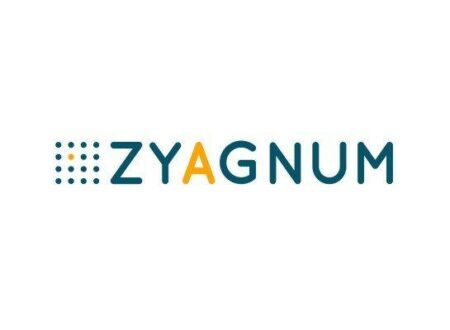Advancements in 3D Cell Culture Market: Pioneering Applications and Market Trends from 2023 to 2027
3D cell culture is a vital technique in cell biology and tissue engineering that involves growing and studying cells within a three-dimensional environment, mimicking the conditions found in the human body. It offers numerous advantages, including the ability to replicate in vivo conditions, support the growth of complex multicellular structures, and provide realistic scenarios for drug testing. Various methods are used for 3D cell culture, such as scaffold-based approaches utilizing materials like hydrogels. Its applications encompass cancer research, tissue engineering, and drug development, leading to more accurate assessments of drug effects. However, it presents challenges, including increased complexity, the need for specialized equipment and expertise, and potentially higher costs compared to 2D cell culture. Bioprinting is often integrated into 3D cell culture, enabling precise cell and biomaterial placement, while organoids, a specific type of 3D cell culture, have gained prominence in disease modeling and drug testing.
Advancing 3D Cell Culture Techniques: Meeting the Demands of Modern Research
3D cell culture is a technique gaining traction in cell biology and tissue engineering due to several compelling factors. First and foremost is the demand for more physiologically relevant cell culture models. Traditional 2D cultures often fail to replicate in vivo conditions accurately, leading to inaccurate results in drug testing, disease modeling, and toxicity studies. Improved drug testing is another driving force, as 3D cell culture provides a superior platform for predicting drug behaviour within the human body, potentially reducing drug development costs and timelines.
Tissue engineering benefits greatly from 3D cell culture, enabling the creation of complex tissues and organs for transplantation and research. In cancer research, 3D cell cultures offer more accurate tumour growth and behaviour modeling compared to traditional monolayer cultures. Furthermore, stem cell research benefits from 3D culture systems that support stem cell differentiation and growth.
For instance,
- In June 2023, Vertex Pharmaceuticals Incorporated and Lonza unveiled a strategic partnership aimed at facilitating the production of Vertex’s range of prospective stem cell-derived, fully specialized insulin-producing islet cell therapies designed for individuals with Type 1 Diabetes (T1D). The collaboration primarily focuses on the VX-880 and VX-264 programs, both of which are presently undergoing clinical trials
- In October 2022, Corning Incorporated expanded its 3D cell culture offerings by introducing the Elplasia12K flask to its product line. This flask is specifically designed to facilitate spheroid culture, a method commonly utilized in cancer research and the advancement of therapeutic treatments.
The rise of personalized medicine allows the creation of 3D cell culture models using a patient’s cells for customized drug testing and treatment plans. Innovations in biomaterials, such as hydrogels and scaffolds, simplify the creation of 3D cell culture environments. Interdisciplinary collaboration among researchers further propels the development of 3D cell culture techniques.
For instance,
- In June 2023, Bristol Myers Squibb received approval from the U.S. Food and Drug Administration (FDA) for commercial production at their recently established cell therapy manufacturing facility in Devens, Massachusetts. This facility is a vital part of Bristol Myers Squibb’s growing global network for producing cell therapies, ensuring a consistent supply of these treatments in the long term, and delivering these therapies to patients worldwide who have unmet medical needs
- In March 2021, Thermo Fisher Scientific introduced the Gibco Human Plasma-like Medium (HPLM), marking the debut of the first cell culture medium that replicates the metabolic characteristics of human plasma. This innovative medium is specifically created to offer researchers a more authentic perspective on cell growth as it occurs within the human body.
Revolutionary Trends in Cell Culture: Organoids and Microfluidics as Catalysts
The utilization of organoids in 3D cell cultures, which more closely mimics natural tissue architecture than traditional 2D cell cultures, is a significant trend for various reasons. It allows for disease modeling, particularly in conditions like cancer, neurodegenerative disorders, and gastrointestinal ailments, aiding in the study of disease progression and treatment testing. Additionally, organoids are increasingly crucial in drug testing and development, offering more accurate assessments of drug efficacy and safety. Furthermore, they enable personalized medicine by using a patient’s own cells, resulting in more effective, tailored treatments. Organoids also contribute to understanding tissue development and physiology, shedding light on normal organ function and development. Notably, the use of organoids and microtissues in 3D cell culture has the potential to reduce ethical concerns by decreasing the reliance on animal testing in some cases. This trend is expected to continue to grow as technology and methodologies for working with these cellular models evolve.
For instance,
- In July 2023, Thermo Fisher Scientific announced the introduction of the Gibco™ OncoPro™ Tumoroid Culture Medium Kit. It is the first commercially available culture medium specifically designed for the growth of patient-derived tumoroids, also known as cancer organoids, from various cancer types. Thermo Fisher’s innovative modular kit is aimed at making complex cancer models more accessible to researchers, addressing these challenges and facilitating advancements in cancer research
- In February 2023, Corning Incorporated unveiled its most recent advancements in automation and 3D cell culture during the annual Society for Laboratory Automation and Screening (SLAS) conference held in San Diego, California. Within this context, Corning Life Sciences introduced a comprehensive array of tools for 3D culture, featuring the innovative Elplasia® 12K flask and an upcoming Elplasia plate designed with an open-well format to simplify the manipulation of spheroids and organoids.
Microfluidic 3D cell culture is an advanced technique used in cell biology and tissue engineering. Microfluidics involves the manipulation of small volumes of fluids in micro-scale channels. It has gained prominence in cell culture due to its ability to precisely control the microenvironment of cells. Microfluidic-based 3D cell cultures provide a better approximation of the in vivo cellular environment, making them useful for drug testing and disease modeling. Microfluidic systems can be designed for high-throughput screening of compounds, making them valuable in drug development. Researchers can control factors like nutrient supply, oxygen concentration, and waste removal with precision in these systems.
Key Constraints/Challenges
The global 3D cell culture market faces numerous hurdles, including the lack of standardized protocols for result comparison, higher costs associated with specialized equipment, and the complexity of adopting new techniques. Scaling up for large-scale production and ensuring biocompatibility with biomaterials presents additional challenges, along with the need for consistent and reproducible results. Integrating 3D cell culture into high-throughput screening and complex data analysis poses technical challenges. Addressing these challenges is crucial for the continued development and expansion of 3D cell culture applications in various fields, including drug discovery, regenerative medicine, and disease modeling.
Find more about this research https://meditechinsights.com/3d-cell-culture-market/
Medi-Tech Insights is a healthcare-focused business research & insights firm. Our clients include Fortune 500 companies, blue-chip investors & hyper-growth start-ups. We have successfully completed 100+ projects in Digital Health, Healthcare IT, Medical Technology, Medical Devices & Pharma Services.
Medi-Tech Insights
121/7E Avenue Franklin Roosevelt
B1050 Brüssel
Telefon: +32 (498) 8680-79
http://meditechinsights.com/
Associate, Medi-Tech Insights
Telefon: +32 (498) 8680-79
E-Mail: info@meditechinsights.com
![]()




